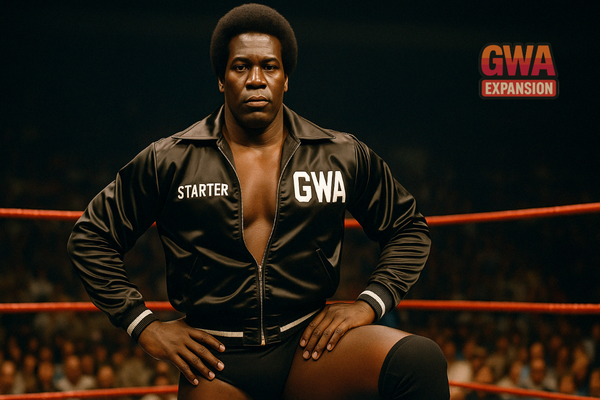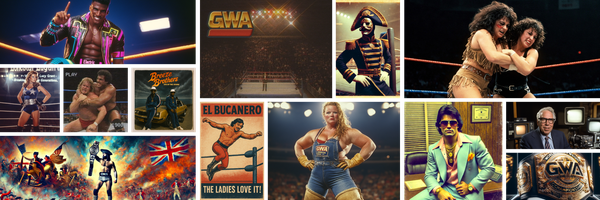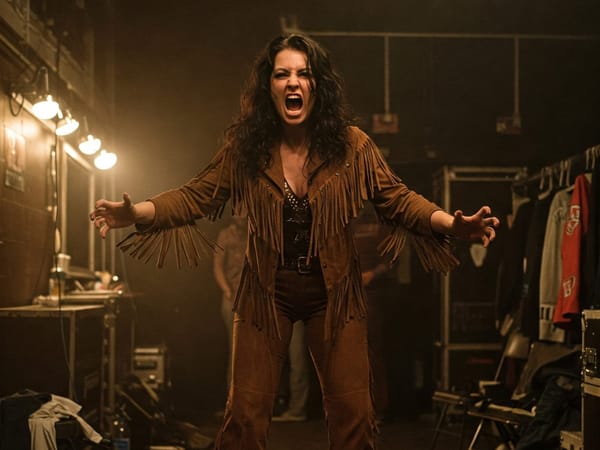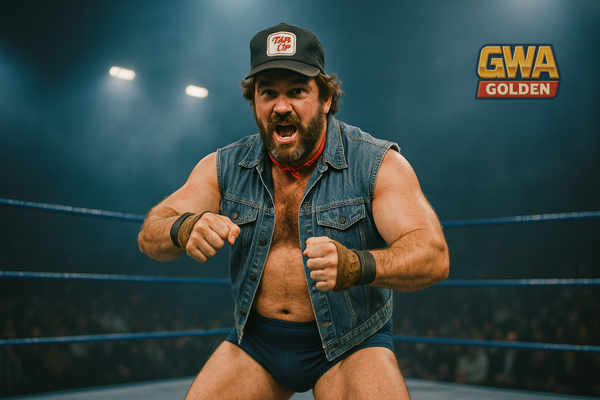Jackie Burns, The Scorcher
From the scorching heart of Death Valley emerges a man forged in heat & hammered by endurance. Not the flashiest or the loudest, but when others wilt and fade, Jackie Burns is just warming up. The man who outlasts the fire isn't seeking glory—he's proving a point about what it means to never break.
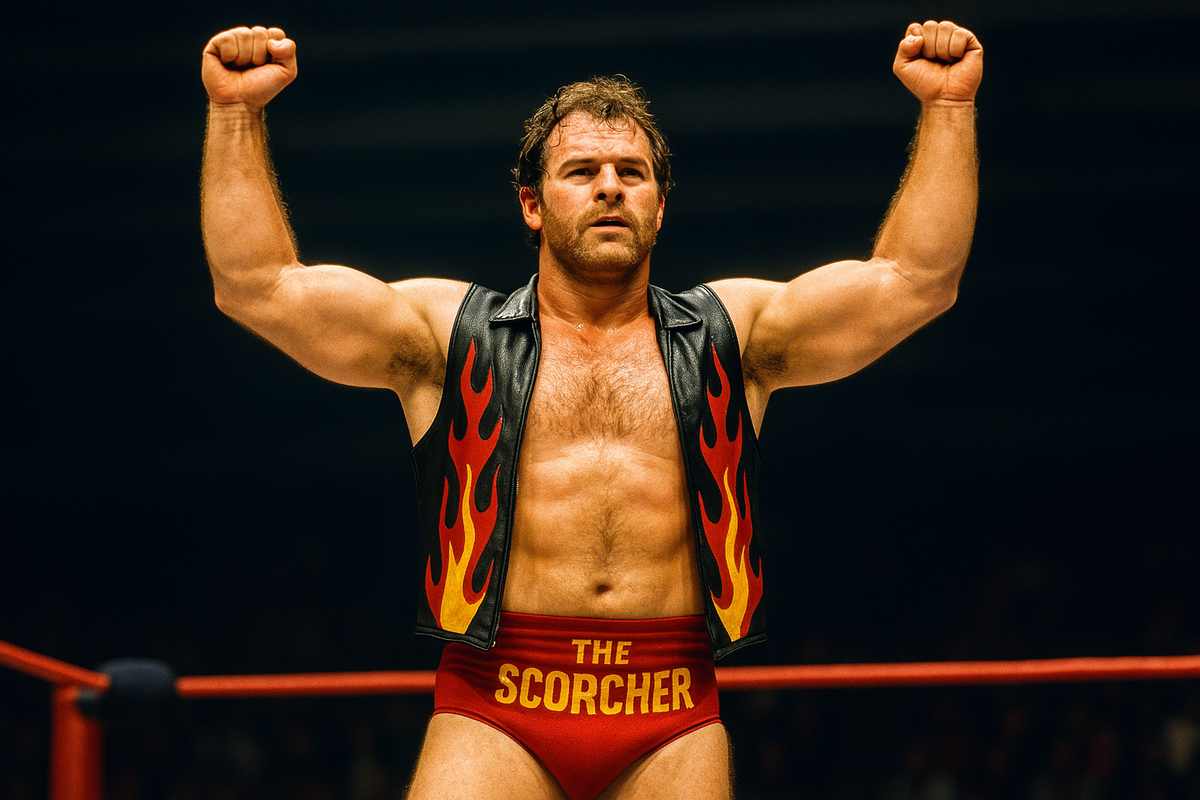
BASIC INFORMATION
Ring Name: "The Scorcher" Jackie Burns
Nickname(s): Death Valley's Son, The Marathon Man
Origin: Death Valley, California
Height: 6'1"
Weight: 227 lbs
Finishing Move: Desert Heat (Dragon sleeper with body scissors)
Entrance Music: "Fire Eater" by Rusty Bryant (1971)
PROFILE
Background
Burns emerged from the scorched terrain of Death Valley with a simple philosophy: survival isn't about avoiding the heat—it's about outlasting it. Son of a desert mechanic and former marathon runner, Jackie learned early that discomfort builds character. Debuting in 1970 as an arrogant heel who demanded afternoon matches "when the sun burns hottest," he gradually earned respect through his iron man performances. His 1973 face turn came after a legendary 90-minute outdoor battle with "Ironside" Ivan Gregorovich in 110-degree heat, cementing his legacy as GWA's living embodiment of endurance.
Personality Traits
- Stoic and measured, rarely raising his voice
- Values endurance and suffering as character-building
- Methodical and patient, never rushing
- Respects opponents who can "go the distance"
PRESENTATION
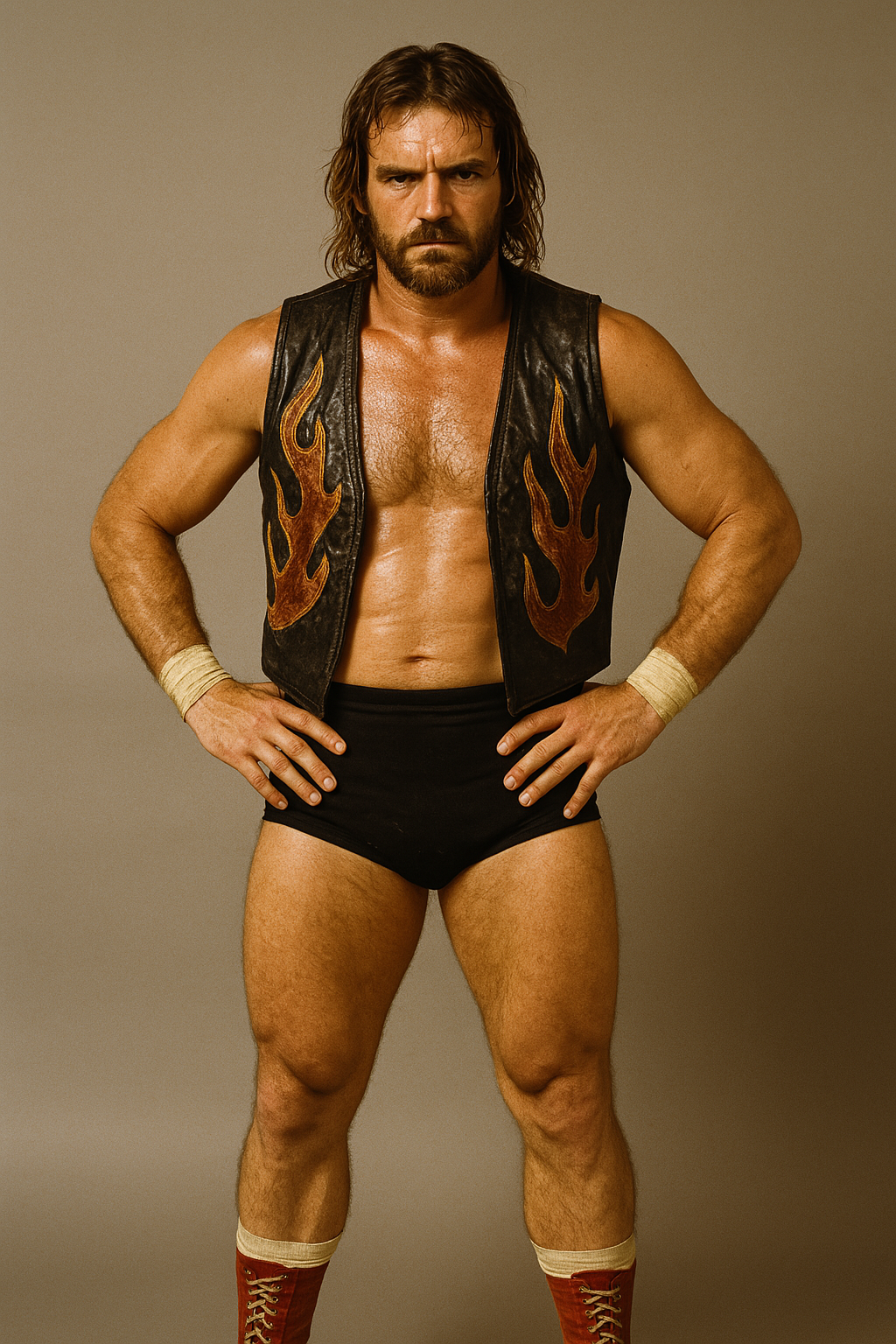
Physical Appearance
Jackie's appearance screams authenticity—sun-weathered skin, leathery and bronzed from years under the desert sun. His sandy brown, shoulder-length hair appears perpetually damp with sweat, while his deep-set hazel eyes hold a permanent squint. He wears classic black wrestling trunks with faded orange-and-red flame patterns, paired with sun-baked red boots. His most iconic accessory is a worn black leather vest with stitched flame decals, only worn to the ring. His body is lean and wiry with "steel-cable musculature"—built for endurance, not show.
Ring Style
Burns works a deliberate, calculated style built around wrestling fundamentals and strategic striking. Early in matches, he conserves energy, breathing steadily while opponents waste theirs. As matches progress, he "heats up," increasing his intensity when others begin to fade. His technical prowess focuses on grueling submissions that wear down opponents, punctuated by precisely timed power moves. Jackie doesn't just want to win—he wants to prove his superiority through endurance, making his bouts physical endurance tests for his opponents.
AUDIENCE CONNECTION
Catchphrases
- "The heat's just getting started."
- "I've run the canyons of Hell just to get to this ring... and you think fifteen minutes is gonna stop me?"
- "You're burning out. Me? I'm just warming up."
Fan Interaction
Burns rarely played to the crowd directly—his connection came through authenticity rather than pandering. Blue-collar fans especially related to his work ethic and no-nonsense approach. His signature mid-match moment—dropping to one knee after a punishing sequence, wiping sweat from his brow, and muttering his catchphrase—regularly brought crowds to their feet. After victories, he never celebrated excessively, simply acknowledging the win with a nod before walking away, often leaving his defeated opponent a red towel as a symbol of respect.
LEGACY
Jackie Burns redefined what a wrestling character could be by building his entire persona around an authentic quality—his superhuman endurance. In an era when many wrestlers were becoming more theatrical, Burns anchored the GWA in athletic credibility. He pioneered the concept of wrestling psychology based on stamina rather than flashy moves, influencing generations of "workhorses" who followed. Burns created a blueprint for wrestlers who lacked natural charisma but compensated with authenticity and work ethic. His matches weren't just contests—they were tests of will that helped establish the GWA's reputation for gritty realism and athletic competition.


